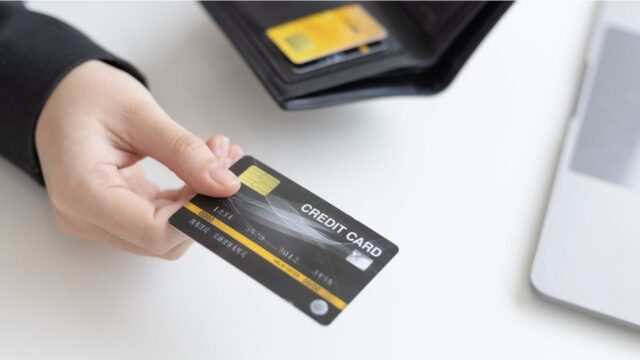
As a teenager, building credit might not be on your radar just yet. But did you know that the actions you take now can have a big impact on your financial future? Establishing good credit early on can help you get approved for loans, credit cards, and even apartments later in life. In this post, we’ll go over some simple steps you can take to start building credit as a teenager.
1. Understand the Basics of Credit
Before you start building credit, it’s important to understand what it is and why it matters. Credit refers to your borrowing history, and it’s tracked by credit reporting agencies such as Equifax, Experian, and TransUnion. A credit score is a number that reflects your creditworthiness, or how likely you are to pay back debt on time. The higher your score, the better your credit. To start building credit, you’ll need to open a credit account and make payments on time.
2. Get a Credit Card
One way to start building credit is by getting a credit card. Many issuers offer credit cards specifically for students and young adults, with lower credit limits and more forgiving approval requirements. When you get a credit card, make sure to use it responsibly – only charge what you can afford to pay back, and always make your payments on time. Set up automatic payments or reminders if you need to.
3. Become an Authorized User
If you’re not yet old enough to get a credit card on your own, you can become an authorized user on someone else’s account. This means you’ll have your own card with your name on it, but the account will be in someone else’s name. Make sure to choose someone who is responsible with credit and pays their bills on time. Being an authorized user can help you build credit, but keep in mind that the primary account holder is ultimately responsible for any debt incurred.
4. Consider a Secured Credit Card
If you’re having trouble getting approved for a traditional credit card, a secured credit card might be a good option. With a secured card, you’ll need to put down a deposit that serves as your credit limit. This deposit acts as collateral in case you don’t make your payments. Secured cards can help you build credit, but they often come with higher fees and interest rates than traditional cards, so make sure to read the terms carefully.
5. Monitor Your Credit
Once you start building credit, it’s important to regularly check your credit report and score to make sure everything is accurate and up-to-date. You can get a free credit report every year from each of the major reporting agencies, and there are many websites and apps that can help you monitor your score. If you notice any errors on your report, make sure to dispute them with the credit bureau.
What are some credit mistakes to avoid?
While building credit is important, it’s equally important to avoid making any credit mistakes that could harm your credit score. Here are some common mistakes to avoid:
1. Late Payments. Paying your bills on time is one of the most important factors in building good credit. Late payments can have a negative impact on your credit score and may stay on your credit report for up to seven years.
2. Maxing Out Credit Cards. Using too much of your available credit can hurt your credit utilization ratio, which is the amount of credit you’re using compared to the amount you have available. This ratio is a major factor in determining your credit score. Experts recommend that you use no more than 30% of your available credit.
3. Closing Old Accounts. Closing a credit card account you don’t use anymore might seem like a good idea, but it could actually hurt your credit score. Closing an old account can lower your available credit and shorten your credit history, both of which can negatively impact your credit score.
4. Applying for Too Much Credit. Applying for too many credit cards or loans in a short period of time can make you appear desperate for credit and lower your credit score. Only apply for credit when you really need it.
5. Ignoring Your Credit Report. It’s important to regularly check your credit report to make sure there are no errors or fraudulent activity. If you don’t check your report, you could miss a mistake that’s hurting your credit score.
Avoiding these credit mistakes will help you build a strong credit history and keep your credit score in good shape. Remember, good credit takes time to build, but it can be easily damaged. Be responsible with your credit and watch your credit score soar.
Conclusion:
Building credit might not be the most exciting thing to think about as a teenager, but it’s an important step towards financial independence. By understanding the basics of credit, getting a credit card or becoming an authorized user, considering a secured credit card, and monitoring your credit, you can start building a strong credit history early on. This will help you qualify for loans and credit cards in the future, and set you up for financial success.


































